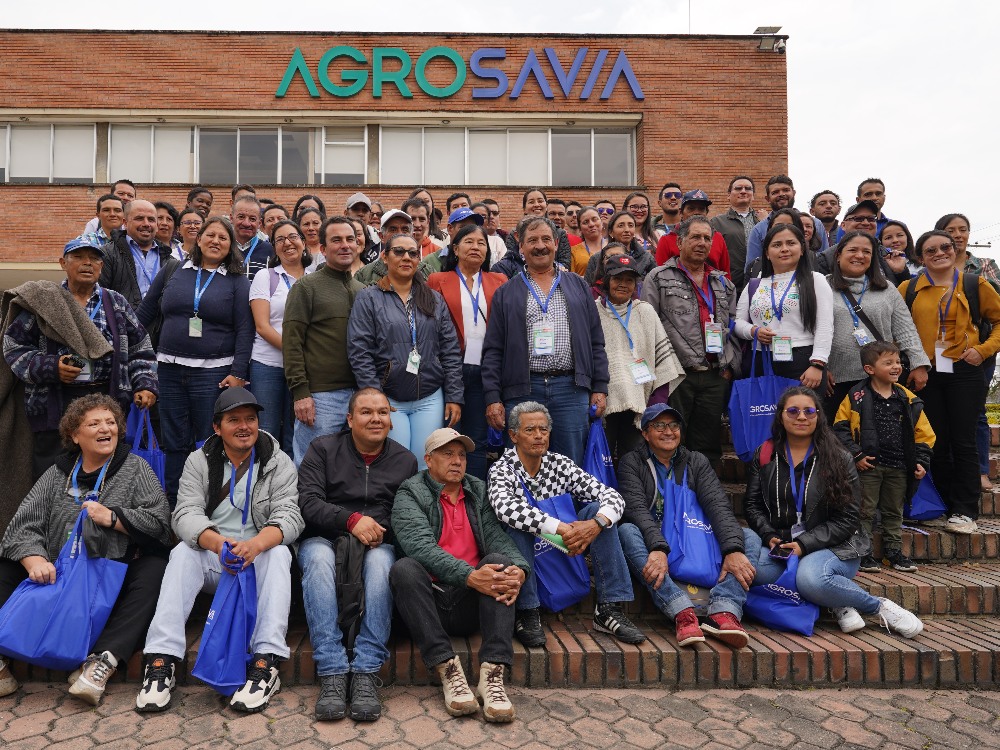Mosquera, Cundinamarca. August 15, 2023. In a joint effort to revitalize the competitiveness of Cape Gooseberry, one of Colombia's flagship fruits, the pioneering project “Development, technology transfer and knowledge for innovation that reduces the low competitiveness of cape gooseberry derived from the Covid-19 emergency” has ended. The Tibaitatá Research Center of AGROSAVIA led this initiative, which has provided transformative results for cape gooseberry production in the country.
Dr. Margarita Ramírez, Ph.D. from the Tibaitatá Research Center of AGROSAVIA, shared the three most outstanding achievements of the project, “In the first place, the beneficial effect of the use of mycorrhizal fungi and Bacillus in the nutrition of cape gooseberry was validated. This strategy allowed a 50 % reduction in chemical fertilization, improving the quality of the fruit for export and mitigating the impact of Fusarium oxysporum f sp physalis, which translated into an increase in production and profits for producers. In the second place, the knowledge dialogue between researchers and cape gooseberry producers in the regions of Granada and Ubaté, in Cundinamarca, strengthened shared knowledge and technology transfer. The workshops and exchange spaces enriched mutual learning and contributed to the effective implementation of innovative practices on the farms. And in the third place, the project raised considerable interest among farmers in small-scale multiplication methodologies for mycorrhiza-forming fungi, a key factor for increasing sustainability and productivity in the sector."
These results directly benefit farmers and play an essential role in the sector's economic reactivation and export projection. Dr. Ramírez highlighted how the project addresses the main phytopathological limitations of cape gooseberry, such as Fusarium at harvest and Botrytis at harvest and post-harvest. Implementing beneficial microorganisms and adequate management practices reduces the need for agrochemicals, lowers production costs, and maintains high quality and production levels, thus allowing compliance with the safety and quality standards required by international markets.
To access the information generated by the project, the various sector actors can consult publications and materials that document the results and best practices. From books to videos and manuals, a wide variety of resources will soon be available to ensure that the information is accessible and usable by all stakeholders. In addition, from the project’s side, the results have been presented at international congresses and symposia, providing additional opportunities to share and debate the progress achieved.
Clara Páez, cape gooseberry producer and participant in the project stated, “We feel very happy and satisfied because we have managed to enrich our knowledge through conferences, field trips, and visits to the laboratories of the Tibaitatá Research Center. We recognize that Dr. Margarita and her team are people who strive to do a job conscientiously, with a purpose, and who seek results. We need many people with their characteristics in our country. We have so much unexplored richness, and sometimes we complain for no reason; we must act! Thank you from the bottom of my heart, and I trust that we will keep in touch. I want to extend my thanks to the entire AGROSAVIA team”.
Looking to the future, AGROSAVIA will continue its commitment to the cape gooseberry productive sector. Collaborations with companies such as Colombian Paradise and Caribbean Exotic are underway, and the focus on small-scale multiplication of mycorrhizal-forming fungi remains a priority. The long-term impact of this project is reflected in the experience of Alejandro Castañeda Gómez, a cape gooseberry producer from Vereda (small suburban district) La 22 in Granada. He praises the positive results in the fight against Fusarium and its increase in production. Knowledge transfer and strengthening innovative practices have left a lasting impression on the farming community, promoting a brighter future for the cape gooseberry industry in Colombia.
- More information here:
- María Elena Londoño Rubio
- Communications, Identity and Corporate Relations Professional
- Research Center Tibaitatá
- Communications, Identity and Corporate Relations Advisory Office
- melondono@agrosavia.co
- AGROSAVIA





